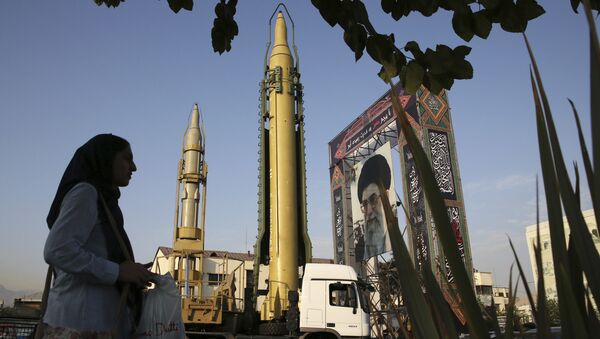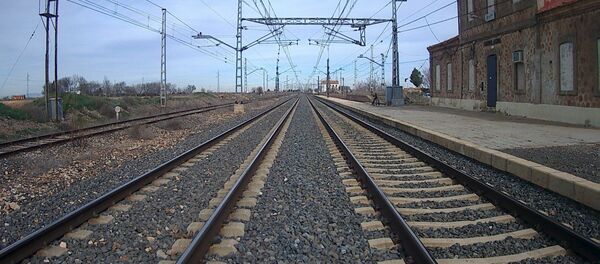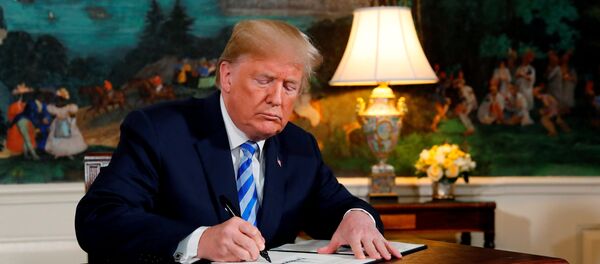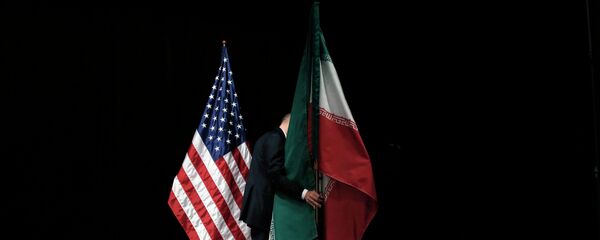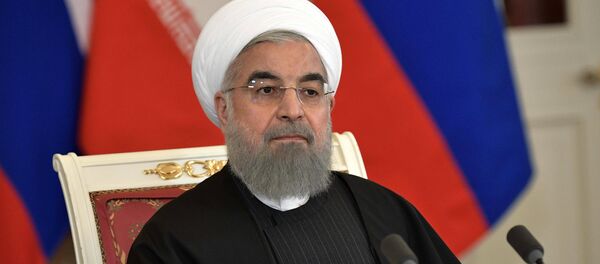Kristian Rouz — The Iranian government is weighing fiscal and monetary accommodation aimed at encouraging domestic investment, with a focus on private-sector spending. Such incentives, officials in Tehran believe, could help offset some of the crippling effects to Iran's financial system, employment, and economic activity, after the first package of US sanctions goes into effect on August 4.
According to Iranian Vice President Eshaq Jahangiri, the government will offer tax breaks to investors who allocate their capital into one or several of the 76,000 governmental projects. These include infrastructure and energy objects, which are currently either unfinished or frozen due to a lack of financing.
"Over the past few months, the country's liquidity has gone into housing, foreign exchange and gold coins, raising prices and provoking public concerns," Jahangiri said.
READ MORE: Iran Readies Own Digital Currency to Get Around US Sanctions — Reports
The vice president stressed the importance of domestic investment into the Iranian economy, urging an increased self-reliance and a pivot to the internal market amongst Iran's private-sector enterprises.
"A main issue in the meeting was to find solutions to push liquidity towards employment and activating manufacturing," Jahangiri said, referring to a recent cabinet meeting with President Hassan Rouhani, key members of parliament and top judiciary officials.
Meanwhile, the last time Iran was under tough international sanctions, its economy was in a recession due to disinvestment and lack of oil revenues — and the renewed US sanctions might bring on another recession.
READ MORE: 'US Sanctions on Iran Will Not Have Any Impact & Will Fail' — Oil Economist
But some experts say the main risk to the Iranian economy comes from structural inefficiency and the nation's excessive reliance on oil exports and revenues — whilst supply-side reform at home could help offset these issues.
"Rouhani's government has no real understanding of the extent of what's going to happen and what will happen with these sanctions," Saeed Laylaz, a former economic adviser to the Iranian government, said. "The strategy is firefighting. They're dealing with crises as they happen."
According to a report from the Ministry of Industries, Mining and Trade, coke and oil are still the most attractive investment destinations — with a total volume of investment in these sectors reaching $1.5 billion between March and May.
READ MORE: Action on Iran Sanctions to Have Decisive Bearing on Indian Elections — Analyst
Iranian energy is closely followed by the chemical industry, which attracted some $420 million in investment over the same period. Iranian private-sector investors have allocated some $2.38 billion in renewable energy over the past two years — but in the face of international sanctions, it is unclear, whether the pace of investment in this area could sustain its upbeat dynamics.
"The Energy Ministry changed its approach to renewables in 2016 largely due to financial constraints, and private investors came on the scene," Mohammad Sadeqzadeh, director of Iran's Renewable Energy and Energy Efficiency Organization (Satba), said.
Meanwhile, a separate report from the Financial Information Processing of Iran showed returns on investments (ROI) for the nation's 214 wealth funds averaged —0.08 percent between June 22 —July 22.
READ MORE: Iran Pledges to Secure Oil Supplies to India Amid US Sanctions Threat
The proposed plans are also aimed at addressing economic concerns of Iranian citizens, who have recently expressed their dissatisfaction with the plunge of the national currency, as well as rising consumer prices and elevated unemployment.
The government hopes to create jobs and boost consumer confidence by resuming some of its projects, but uncertainty is rife over even the near-term economic prospects of the Islamic Republic.

